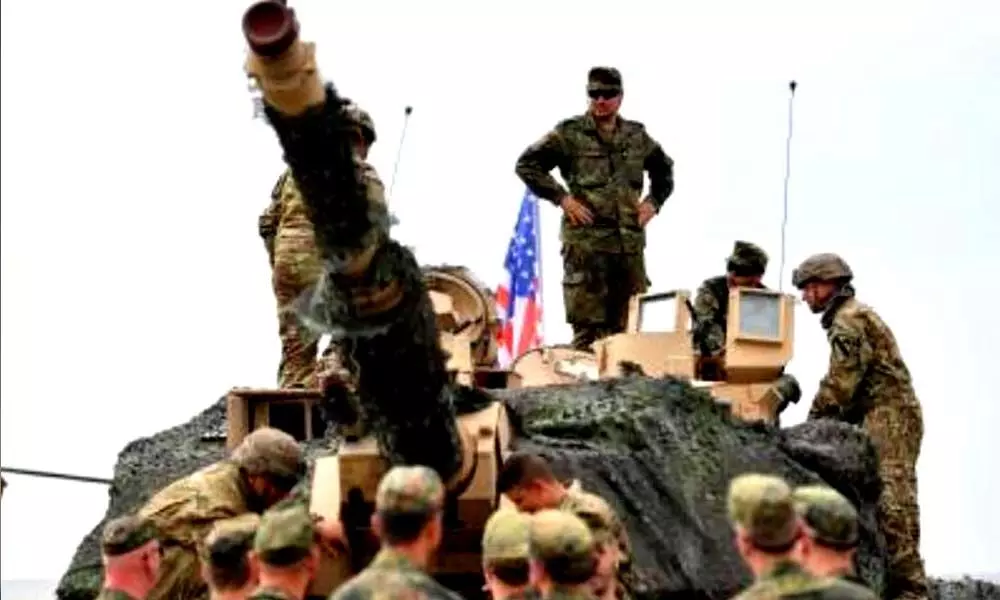Germany's military resurgence
After a continuous barrage of criticism for overlooking the Russian aggression dubbed as its naivete, Germany has announced new military plans, which might change the regional and global geopolitics dimensions once again.
image for illustrative purpose

After a continuous barrage of criticism for overlooking the Russian aggression dubbed as its naivete, Germany has announced new military plans, which might change the regional and global geopolitics dimensions once again.
In a historic announcement to the parliament, German Chancellor Olaf Scholz announced on Sunday additional funding of 100 billion euro to boost Germany's armed forces, besides a sustained increase in its defence spending over the coming years.
The country, which one could say was at the centre stage of the flared up Russian-Ukrainian crisis, has taken the world community by surprise after its latest announcement to boost up its military power.
Germany was at the centre of the flared-up conflict between Russia and Ukraine as the Nord Stream 2 gas pipeline from Russia to Germany, bypassing Ukraine, played a major role in flaring up the sentiments on both sides.
It was responsible for revenue loss for Ukraine in the first place and secondly it was giving sleepless nights to western and particular American political, geopolitical and military experts and advisers as they could foresee a future with increased Russian influence and it becoming one of the most dominant energy supplier to Germany and Western Europe.
In fact Vladimir Putin's expansionist policies have unintentionally achieved what Western allies have long struggled for, to get Germany act with an assertive foreign policy and increase its military might despite its World War guilt.
German Plans
Olaf Scholz received an standing ovation from the Bundestag, when on Sunday he announced a dramatic hike in Germany's military spending after the Russian invasion of Ukraine. The speech is being heralded as historic as it marks a paradigm shift in German foreign and defence policy.
Scholz said Germany from now on would invest more than 2 per cent of its economic output on defence up from around 1.5 per cent currently, after years of resisting pleas from NATO allies to do so, and set up a 100-billion-euro ($112 billion) fund to re-equip the military.
More importantly, as per the American desire, he also outlined plans to reduce Germany's dependence on Russia for its gas needs, thus increasing hopes that Berlin might consider geo-strategic concerns more in all its trade relations.
On Sunday, he announced a 100-billion-euro fund - more than double than its last year's defence budget - to modernise its military, including buying armed drones and new fighter jets, obviously from America significantly.
Scholz described the current conflict as "Putin's war", adding that "the requirement is as much diplomacy as possible without being naive".

